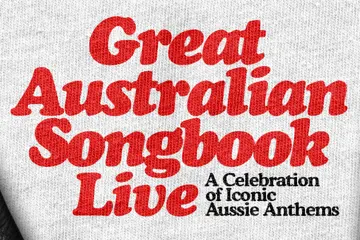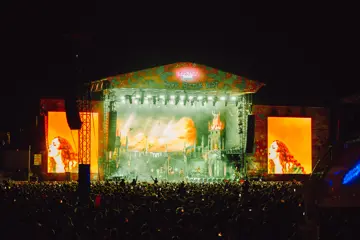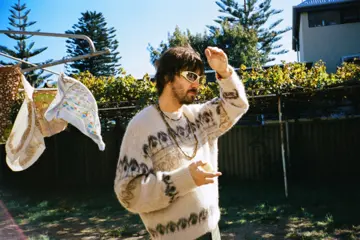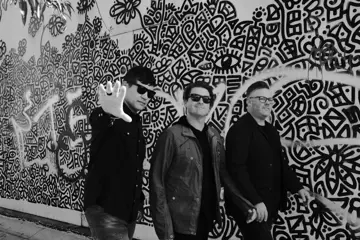Australian music is looking to reclaim its position not only at home but on the world stage as the federal government unveils its national cultural policy, Revive.
Injecting $286 million into the arts and culture sector over five years, the policy’s centrepiece is a new investment and advisory body known as Creative Australia, a reimagined and properly funded Australia Council that will encompass new functions and will receive $200 million over the next four years.
One of four new bodies within Creative Australia, Music Australia, will launch this year and be injected with $70 million.
Music Australia will be charged with:
- Industry and market development for contemporary music
- Investment in the creation of original music, songwriting and recording initiatives in schools
- New strategic partnerships
- Research
- Funding for the export program Sounds Australia
- New co-investment agreements with states and territories
“[The music sector has] endured a decade in which opportunity wasn’t so much missed as thrown away; capped by the years of the pandemic in which the loss of opportunity was exacerbated by what was a calculated neglect,” Prime Minister Anthony Albanese said at today’s launch in The Gershwin Room at The Espy.
“Fittingly, our cultural policy for the next five years is called Revive… Revive puts the arts back where they are meant to be – at the heart of our national life. Revive is structured around five interconnected pillars:
- First Nations first – because we recognise and respect the crucial place of First Nations stories at the centre of Australia’s artists and culture
- A place for every story – which reflects the breadth of our stories and the contributions of Australians as the creators of culture
- The centrality of the artist – which supports the artist as a worker, and celebrates artists as our creators
- Strong cultural infrastructure - which provides support across the spectrum of institutions that sustain our arts, our culture and our heritage
- Engaging the audience – to ensure that our stories reach people both at home and abroad
“The arts cannot be left simply to those who can afford to do it. Arts jobs are real jobs.”
Arts Minister Tony Burke added: “Today, the Albanese Labor Government has a message for you: you touch our hearts… and you are a $17 billion contributor to the economy. You create art and you create exports. You make works and you provide work. You are entertaining and you are essential. You are required.”
Don't miss a beat with our FREE daily newsletter
Burke stressed the urgency of Music Australia by highlighting the lack of local talent within this week’s ARIA charts; only two Aussie artists feature on the Singles Chart and two on the Albums Chart, none of which crack the Top 20.
On the Singles Chart, there’s Dean Lewis’ How Do I Say Goodbye at #23 and The Kid LAROI & Justin Bieber’s Stay at #31, while INXS (#37) and Spacey Jane (#38) feature on the Albums Chart.
“Every other band is music that is popular, but it’s not our soundtrack. We want to make sure that the soundtrack to life in Australia has Australian music and Australian stories,” Burke said.
“There have been examples of some artists where the Australia Council has provided much-needed support at critical times, but as a general rule, it’s been publishers and managers who found commercial pathways for musicians and authors.
“Both writing and music face very specific competition from new technology and these bodies will operate in a strategic way in a commercial world.
“Music Australia will develop a workforce plan, for missing skills, research and advocacy. We’ll also provide a 50% funding increase for Sounds Australia, which does the job of Austrade for musicians, but with rhythm.”
In the lead-up to today’s announcement, Burke told The Sydney Morning Herald that, given Australia’s relatively small population, “one of the best ways you can support artist incomes is to help them gain an international following.”
“That includes helping Australian artists share the stage at festivals around the globe,” he said.
The government made assurances that they would be “properly funding the ABC and SBS”, which includes further exploration around the expansion of Double J.
ARIA and PPCA CEO Annabelle Herd said it was “fantastic to see contemporary music front and centre of the new National Cultural Policy, represented through a range of commitments, including the new Music Australia to focus on growing export and audience development for our talented artists”.
“The strategic focus, backed by new investment into the Australian contemporary music industry and a whole-of-government approach, is a fantastic first step to realise music’s true potential as a social and economic contributor,” Herd said.
“Contemporary music does so much for Australia. It tells our stories here and overseas. It drives employment, tourism, and expenditure across retail and hospitality. It brings joy, it brings comfort, it makes us feel alive and it makes us proud to be Australian.
“Music should be at the forefront of government cultural and economic policy. It deserves a proper strategic focus and investment in audience development and export. Today’s National Cultural policy is an excellent indication that the government agrees and is committed to growing our music industry, as well as helping secure the global audiences for our artists that they are so ready for.
“Australia is in a prime position to be a global music powerhouse once again. We have the talent and we have a strong industry, the biggest challenge we face now is cutting through and finding an audience for new Australian music when 100,000 new songs are uploaded to streaming services every day, while listening to older ‘catalogue’ music remains so popular.
“It is true that Australian music is facing a crisis in streaming and that it is harder than ever for Australian musicians to have a charting hit in Australia. We thank the government for acknowledging the need for greater support of Australian commercial music as a business that is facing key issues surrounding discoverability and export.
“It is our hope that the introduction of Music Australia will make important strides toward providing solutions to these issues, including a reassessment of commercial radio quotas and streaming policy.”
In response to the policy, APRA AMCOS Chief Executive Dean Ormston said: “We look forward to working with Government on their commitment to ensure that Australian music is ‘visible, discoverable and easily accessible across platforms to all Australians’. This is vital to achieve Australia’s ambition to be a net exporter of music.
“The next ten years will be critical if Australia is to realise future job creation and build skills in music – one of the fastest-growing and most competitive global industries at the forefront of cultural expression, community building, innovation, and economic growth.
“The National Cultural Policy's support for Australian contemporary music will enable the vision, build the strategy, and secure the investment that supercharges Australian music, leaving a legacy for generations.”
APRA AMCOS has also applauded the establishment of Music Australia.
“The creation of Music Australia with recurrent annual funding will, for the first time in the nation’s history, provide an opportunity for a whole-of-government, cross-portfolio, strategic and long-term relationship with the breadth of the Australian contemporary music industry,” Ormston said.
“This is a profound vote of confidence in the cultural, economic and social potential of Australian music. The Albanese Government has clearly listened to the proposals that have been put forward by the eighteen music industry bodies as part of the national cultural policy consultation.
“With this partnership between government and industry, Australia now has the potential to go from a music nation to a music powerhouse that can fully realise the benefits of a vibrant, healthy and sustainable music industry.
“Australian songwriters, composers and recording artists create digital content from bedrooms to studios around the nation. It’s recorded, published and made available for streaming platforms and broadcasters, digital games, films and the small screen. They are born global – part of a US$90billion industry that will double by 2030.
“Music’s very foundation is a thriving and sustainable live music ecology – that’s where artists develop their craft and build their audiences. Over-regulation and now COVID-19 have closed so many venues and threatened the viability of so many more. To reverse this trend, the industry will require a national catalyst to support existing venues and encourage new venues.”
A dedicated First Nations-led Board will be formed within Creative Australia, which Australia Council Executive Director of First Nations Arts and Culture Franchesca Cubillo said was an important step in ensuring self-determination and strengthening First Nations arts and culture.
“As we mark the 50-year anniversary of targeted investment in First Nations arts through the Australia Council, we welcome this important commitment to self-determination as the next step to build on the success of First Nations arts and culture,” Cubillo said.
“Creativity connects us. Ultimately, our vision is for every voice to find its place, reflecting the rich and evolving diversity of Australia, informed by our history, as we grow and foster the next generation of storytellers.”
A new federal body, the Centre for Arts Workplaces, has also been announced, which will address bullying, sexual harassment and mistreatment in the arts industry.
“We welcome the inclusion of a new federal body to address issues of bullying, sexual harassment and mistreatment in the creative industry as part of the National Cultural Policy,” Herd said.
“This announcement will complement and build on the new Respect@Work legislation and changes to existing workplace laws.
“It is our hope that this will bring new focus and much-needed reform to workplace culture in Australian music – as identified by the Raising Their Voices report into sexual harm, harassment and systemic discrimination in the music industry – which recommended the creation of a music industry council built in conjunction with the government.
“The Centre for Arts and Entertainment Workplaces will directly respond to that recommendation, broadening the scope and building in greater government oversight.
“ARIA and PPCA worked closely alongside other key industry organisations on commissioning the Raising their Voices report to ensure a cohesive industry approach.
“We look forward to continuing this, and working with the government on the development of the new body and understanding more detail on its governance and industry representation.”
You can read the full policy here.















